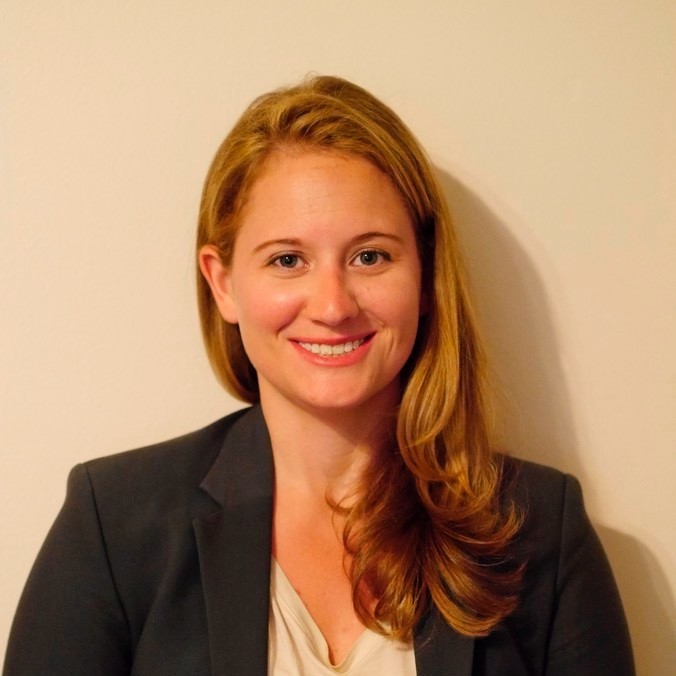Health interventions might be coming soon to a laundromat near you.
Philadelphia-headquartered startup Fabric Health announced its expansion to Pittsburgh following its first place win in Richard King Mellon Foundation’s first-ever pitch competition last month.
Winning a $500,000 investment from the foundation, Fabric Health will take its laundromat-based healthcare services to the Steel City following its rollout at five laundromats in the Philly region. But cofounder Courtney Bragg, whose fellow cofounder is Allister Chang, said the startup’s eyes were on Pittsburgh before that.
“We actually had been asked to expand to Pittsburgh while we were launching in Philadelphia,” she told Technical.ly. The team ultimately decided to take it one city at a time. But when the prospect of setting up shop in Pittsburgh with the backing of a group as prominent as the RK Mellon Foundation, Bragg said the team couldn’t wait to “apply our learnings from Philadelphia while working with a great partner and learning from all the dynamism in Pittsburgh, both as a center of innovation, but also as a healthcare leader.”
Fabric Health’s business model centers on laundromats as places where busy Americans might have unused downtime. And there’s a lot of downtime to leverage: Approximately 32 million Americans spend two hours per week waiting at laundromats, according to the founders.

Those same Americans, Bragg said, might be at risk for certain social determinants of health or simply be facing confusion or limitations with their healthcare providers. So Fabric Health uses a combination of human and tech interfaces to bridge that gap. In partnering with Pennsylvania’s state-run health and dental coverage marketplace, Pennie, Bragg and her team create an opportunity for interventions at laundromats that can help people get the care they need — something that patients and providers alike want to see. That includes healthcare enrollment assistance, or helping people access more affordable prescriptions.
It’s a model that reminds of Baltimore’s Wash and Learn digital access program, co-created by the Enoch Pratt Free Library and Libraries Without Borders and also based in laundromats, and of Live Chair Health, which brings health screening tools to barbershops. Fabric Health is currently operating out of five laundromats in North Philadelphia and Parkside in partnership with a chain called The Laundry Cafe, which offers free Wi-Fi access among other hospitable perks.
Much of the tech behind Fabric Health is still in a user-testing phase, though that’s largely because Bragg said the team wants to tailor its services to what those using them find easiest. For example, where Fabric once used QR codes at the laundromats, a realization that many of its customers don’t have QR code readers on their phones forced them to pursue a different option.
[Editor’s note: Read more about the intersection of digital access and health equity.]
Everything we do is from the question of, what would be helpful? What builds trust?
And while Bragg said she wasn’t able to share all of the details in the startup’s still-developing tech platform, she did say that Fabric has ways of knowing when its customers enter a given laundromat — using Wi-Fi connection tracking, along with other tools — and that helps the company plan for efficient user engagement.
There are already signs that Fabric’s approach works. In its pitch for the competition, the two cofounders said average user engagement times for Fabric’s services were a whopping 47 minutes per visit. Still, while Bragg understands the power tech has to make Fabric Health’s mission more accessible, she said that her team is cautious about implementing new features without thorough user feedback.
“Everything we do is from the question of, what would be helpful? What builds trust?” she said. “And if it’s helpful and builds trust, we’re interested. And if it doesn’t, it’s not a good fit because we just we won’t break trust with the families we serve.”
Beyond the expansion to Pittsburgh that the new investment from RK Mellon will allow for, Bragg said Fabric Health has plans to grow its team in the new year, specifically in looking for people who share the passion of its social impact mission. And ahead of the startup’s full launch in Pittsburgh, Fabric will also be looking for new partners in the city similar to the laundromats and healthcare providers it’s worked with in Philadelphia.
Along with all the nitty gritty of the business expansion, Fabric will also look to improve some its long-term operational goals this year that are less pressing for the families it serves. That involves “making sure that we do that work of not only meeting people where they are in the time that they have in the laundromat, but also thinking about the cadences of people’s lives throughout the year,” Bragg said, adding that Fabric aims to provide a service that provides high impact for as little disruption as possible.







